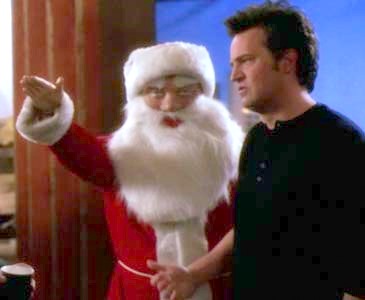“Thine, O
LORD is the
greatness, and the power, and the glory, and the victory, and the
majesty: for all that is in the heaven and in the earth is thine; thine
is the kingdom, O LORD, and thou art exalted as head above all.”
This verse is sometimes cited as influencing the Protestant conclusion of the
Lord’s Prayer:
“Thine
is the kingdom, and the power, and the glory, forever” (Mt 6.13b;
compare 1 Chr 29.11-13)….
This
traditional epilogue to the Lord’s prayer protects the petition for the
coming of the kingdom from being understood as an exorcism, which we
derive from the Jewish prayer, the Kaddish,
which belonged at the time
to the synagogical liturgy.
– World
Alliance of Reformed Churches
The Pennsylvania Lottery on Christmas evening paired 173 with the beastly number 0666.
The latter number suggests that perhaps being “understood
as an
exorcism” might not, in this case, be such a bad thing. What,
therefore, might
“173″ have to do with exorcism? A search in the context of the
phrase “language games” yields a reference to Wittgenstein’s Zettel,
section 173:

From Charles L. Creegan, Wittgenstein
and Kierkegaard:
Language-games give general guidelines of the
application of language. Wittgenstein suggests that there are
innumerably many language-games: innumerably many kinds of
use of the components of language.24
The grammar of the
language-game influences the possible relations of words,
and things, within that game. But the players may modify the
rules gradually. Some utterances within a given
language-game are applications; others are ‘grammatical
remarks’ or definitions of what is or should be possible. (Hence
Wittgenstein’s remark, ‘Theology as grammar’25
- the
grammar of religion.)
The idea of the ‘form of life’ is a reminder about even more
basic phenomena. It is clearly bound up with the idea of
language. (Language and ‘form of life’ are explicitly connected
in four of the five passages from the Investigations in
which the term ‘form of life’ appears.) Just as grammar is
subject to change through language-uses, so ‘form of life’
is subject to change through changes in language. (The
Copernican revolution is a paradigm case of this.) Nevertheless, ‘form
of life’ expresses a
deeper level of ‘agreement.’ It is the level of ‘what has to be
accepted, the given.’26
This is an agreement
prior to agreement in opinions and decisions. Not everything can
be doubted or judged at once.
This suggests that ‘form of life’ does not denote static
phenomena of fixed scope. Rather, it serves to remind us of the
general need for context in our activity of meaning. But the
context of our meaning is a constantly changing mosaic involving
both broad strokes and fine-grained distinctions.
The more commonly understood point of the ‘Private Language
Argument’ – concerning the root of meaning in something public -
comes into play here. But it is important to show just what
public phenomenon Wittgenstein has in mind. He remarks: ‘Only in
the stream of thought and life do words have meaning.’27
- 24
- Investigations, sec. 23.
- 25
- Investigations, sec. 373; compare Zettel, sec.
717.
- 26
- Investigations, p. 226e.
- 27
- Zettel,
sec. 173. The thought is
expressed many times in similar words.
And from an
earlier chapter of Creegan:
The ‘possibility of religion’ manifested itself in
considerable reading of religious works, and this in a person who
chose his reading matter very carefully. Drury’s recollections
include conversations about Thomas à Kempis, Samuel
Johnson’s Prayers, Karl Barth, and, many times, the New
Testament, which Wittgenstein had clearly read often and thought
about.25
Wittgenstein had also
thought about what it would mean to be a Christian. Some time
during the 1930s, he remarked to Drury: ‘There is a sense in
which you and I are both Christians.’26
In this context it is
certainly worth noting that he had for a time said the Lord’s
Prayer each day.27
Wittgenstein’s last words were: ‘Tell them I’ve had a
wonderful life!’28
- 25
- Drury (1981) ‘Conversations with
Wittgenstein,’ in Ludwig Wittgenstein: Personal
Recollections, pp. 112ff.
- 26
- Drury, ‘Conversations,’ p. 130.
- 27
- Drury, ‘Some notes,’ p. 109.
- 28
- Reported by Mrs. Bevan, the wife of the
doctor in whose house Wittgenstein was staying. Malcolm, Memoir,
p. 81.
















